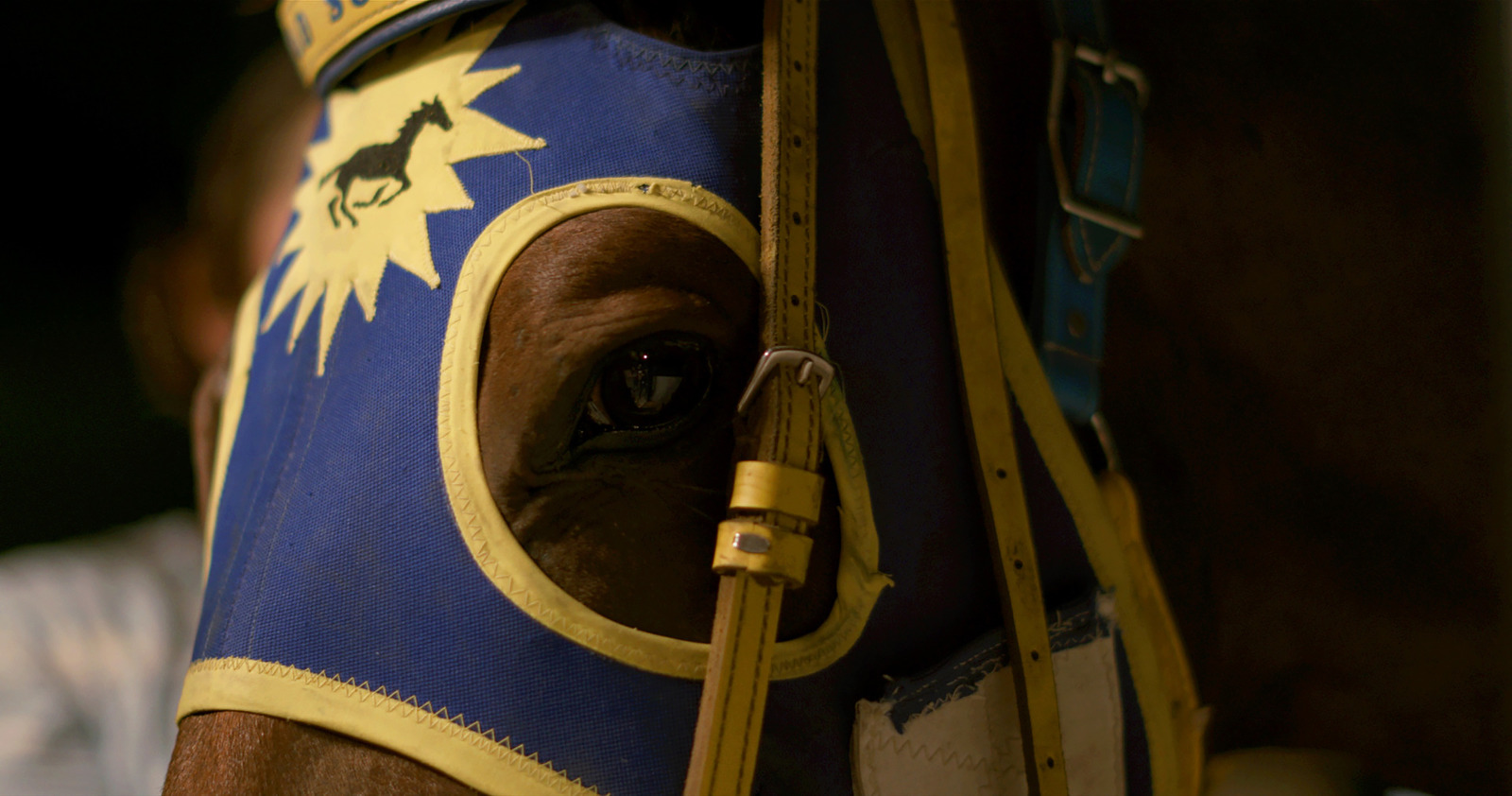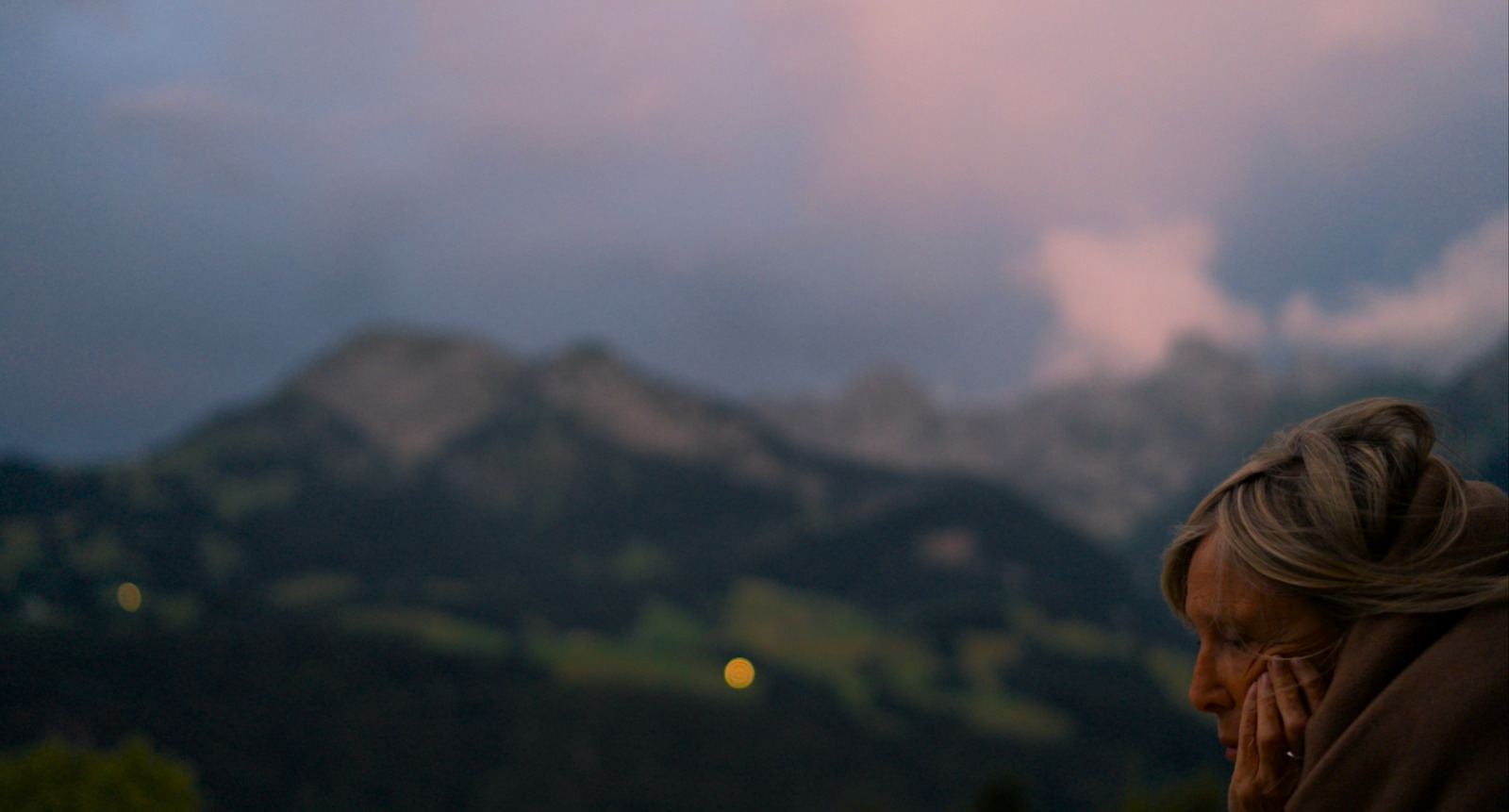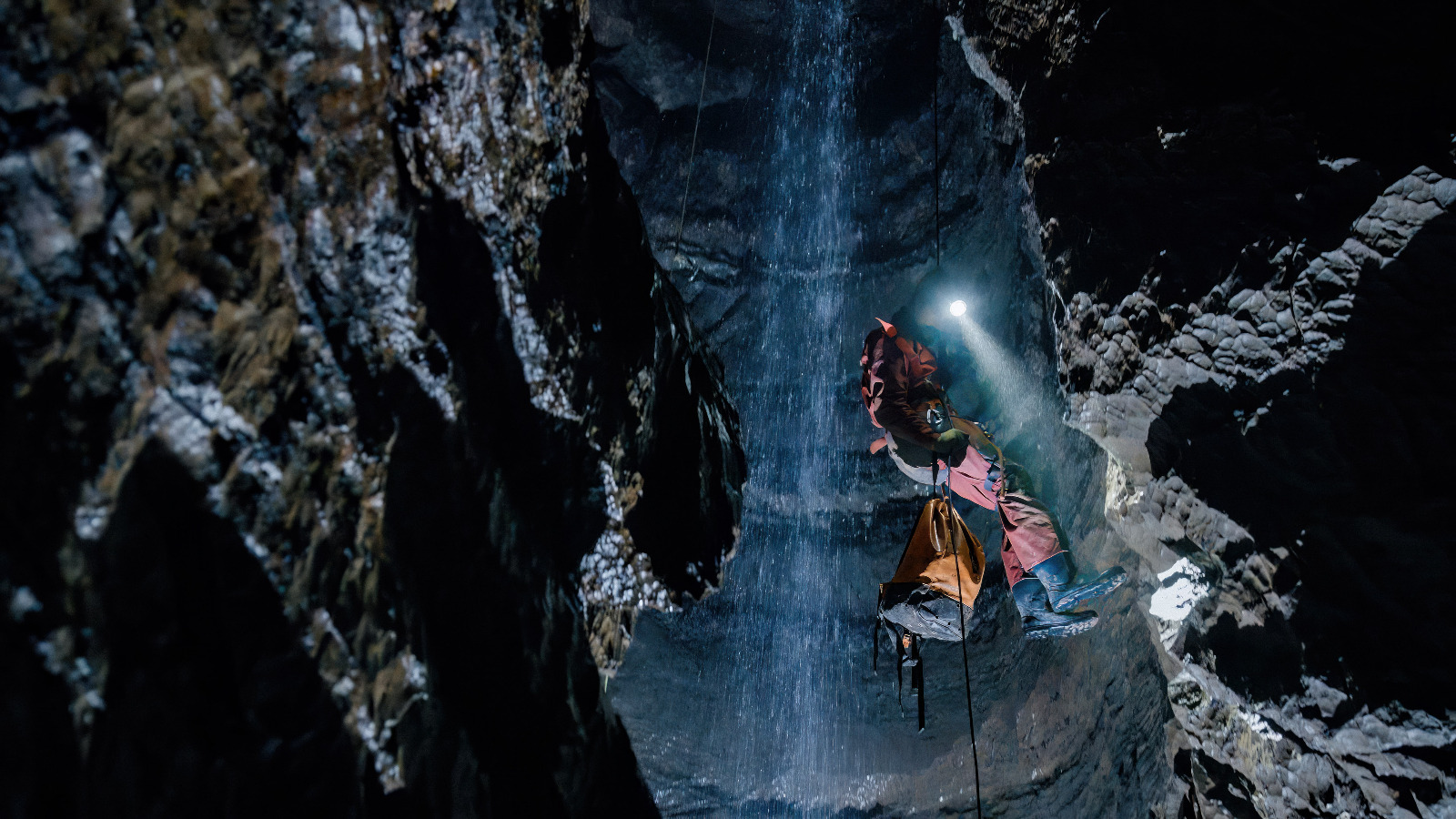Aitamaako’tamisskapi Natosi: Before the Sun
(Canada, 89 min.)
Dir. Banchi Hanuse
Programme: Canadian Spectrum (Canadian premiere)
If called to name Canada’s toughest and most adrenaline-inducing sports, inevitably ice hockey will come to the minds of many. However, there’s another activity, what some call, “North America’s original extreme sport,” that is more worthy: Indian Horse Relay. The race consists of a rider completing three laps around a track, leaping onto a fresh horse after each round. Riders mount their horses without a saddle or helmet, hanging on only by the reins as the powerful beast gallops at full tilt around the track.
Traditionally, only males competed in this heart-pounding event. I suppose the physicality required to jump from one animal to the next has typically been seen as needing a degree of strength only possessed by men. But times are changing and young women are gravitating towards such sports despite their challenges.
Banchi Hanuse’s Aitamaako’tamisskapi Natosi: Before the Sun follows Logan Red Crow, a young Siksika woman (15 years old at the time of filming) who has been watching the race since childhood. Throughout the film, we see Red Crow prepare to join the men’s competition at the Calgary Stampede at a time when there were no races for women in Canada. Eventually, Red Crow is informed that a women’s category for the event has been added, much to her delight.
Before the Sun excels as a sports documentary. Hanuse presents with clarity, artistry and respect the unmistakable force of the horses and the might required to compete. Watching Red Crow train, with her brothers serving as her pit crew, is inspiring. While the physical strength necessary to ride the horses and perform a swift exchange after each lap is a given, Hanuse also imparts to audiences the mental fortitude required. Staying focused and sharp is vital where one misstep could be disastrous and, indeed, fatal.
Cinematographers Ben Giesbrecht and Luke Connor include some beautiful shots of the land, in the tradition of the best nature documentaries. Watching the horses storm through the pastures under the warm glow of the sun is truly awe-inspiring and exemplifies the vigour demanded of the sport’s competitors. Giesbrecht and Connor also capture the thundering nature of the race itself with the sound of the horses’ hooves pounding on the muddy surface reverberating and creating an absorbing cinematic experience.
In addition to the nature and sporting aspects of Before the Sun, Hanuse spends time with the Red Crow family, connecting the young athlete’s passion with her culture and ancestry, as well as the wider social implications of her participation. There are interesting stories and themes, but unfortunately, the narrative becomes a tad one-note as Red Crow’s gender takes centre stage and is repeatedly pressed upon throughout the film.
While, of course, this is an important part of Red Crow’s journey, not to mention an aspect of the competition that needed to be changed, the exploration of this issue doesn’t go beyond Red Crow being a girl and the sport traditionally not having a place for people like her. A nuanced and complex discussion about a woman’s place in sports, Indigenous culture, and even Western society as it pertains to its treatment of Indigenous women is ripe for the picking. Before the Sun’s reading on this topic feels a bit lacking in substance.
However, this doesn’t detract from the strengths of the documentary. Hanuse’s film will undoubtedly introduce Indian Horse Relay to many viewers with Red Crow’s personal journey acting as a gateway into the history of the sport. Even more than that, hopefully it will inspire young Indigenous women across the country to join the boys in this thrilling sport.











